niqab
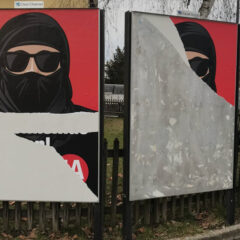
Swiss narrowly back proposal to ban face coverings in public
By Geir Moulson — March 8, 2021
BERLIN (AP) — Swiss voters narrowly approved on Sunday a proposal to ban face coverings, both the niqabs and burqas worn by a few Muslim women in the country and the ski masks and bandannas used by protesters.
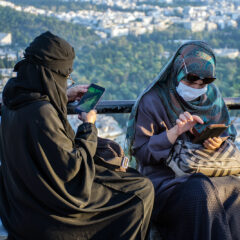
One year on, Muslim women reflect on wearing the niqab in a mask-wearing world
By Anna Piela — February 3, 2021
(The Conversation) — Women reported decreased levels of the kinds of prejudice they experienced before the pandemic.
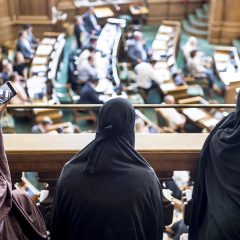
Woman fined $156 for wearing face veil in Denmark
By Emily McFarlan Miller — August 6, 2018
HELSINKI (AP) — A 28-year-old woman wearing a face veil has become the first person in Denmark to be fined for violating a new law banning such garments in public places.

Dutch Parliament approves limited ban on burqa, niqab
By Raf Casert — June 26, 2018
THE HAGUE, Netherlands (AP) — The Netherlands has approved a limited ban on 'face-covering clothing' in public places, including Islamic veils and robes such as the burqa and niqab but not the hijab, which covers only the hair.
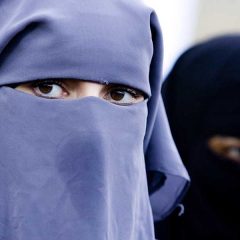
I don’t like niqabs and burqas — but they should be legal
By guest — October 16, 2017
(RNS) — It's hard to think of a way to more quickly alienate new neighbors we want to fully buy in to our way of life than to mock and restrict their clothing, writes John G. Stackhouse Jr.

German conservatives call for partial ban on face veil
By RNS staff — August 20, 2016
(Reuters) The CDU's calls for a partial ban come as it has lost support to the anti-immigrant Alternative for Germany (AfD) party, which says Islam is incompatible with the constitution.
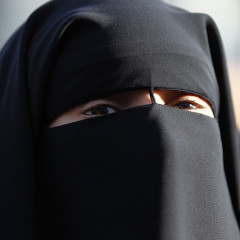
Anniversary of France’s niqab ban passes almost unnoticed
By Tom Heneghan — October 20, 2015
PARIS (RNS) The gradual transformation of the niqab issue from a national debate to little more than a footnote speaks volumes about French politics.
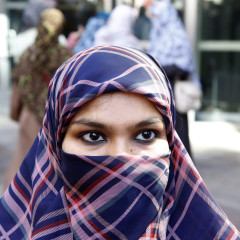
Muslim woman can wear niqab for Canada citizenship oath
By Ron Csillag — October 6, 2015
TORONTO (RNS) The ruling is the third legal defeat for Canada's Conservative government on the Muslim face veil, which has become a hot-button issue in the Oct. 19 federal election.

Congo-Brazzaville bans Muslim women from wearing full-face veils, citing terrorism prevention
By Fredrick Nzwili — May 4, 2015
(RNS) Government officials said they were concerned the garments might be used as a disguise to commit terrorist acts.

Canadian PM faces Twitter backlash over ‘anti-woman’ niqab
By Reuters — March 12, 2015
VANCOUVER (Reuters) "I'm thinking of wearing white shoes before May 24. Is that still considered tacky," asked Toronto Twitter user Sarah Dearing

Canadian Prime Minister Stephen Harper vows to appeal face veil ruling
By Ron Csillag — February 19, 2015
TORONTO (RNS) "I believe, and I think most Canadians believe, that it is offensive that someone would hide their identity at the very moment where they are committing to join the Canadian family," said Stephen Harper.
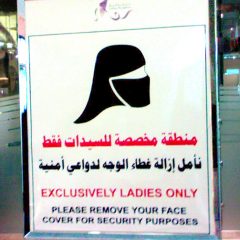
European court upholds France’s ban on face veils
By Elizabeth Bryant — July 1, 2014
PARIS (RNS) Besides France, Belgium has also adopted the veil ban, as have parts of Switzerland, Spain and Italy.

England debates full-face veils in courtrooms
By Trevor Grundy — September 17, 2013
(RNS) In England, a judge's decision to require Muslim women to remove a facial covering prompts a national debate on veils, particularly the niqab, which covers all but the eyes.
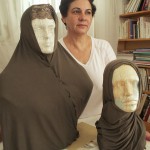
Tunisians worry about loss of freedoms gained under the Arab Spring
By Elizabeth Bryant — October 5, 2012
TUNIS, TUNISIA (RNS) Increasingly, critics say, free expression -- a cornerstone of Tunisia's 2011 revolution -- is under attack. A string of incidents has fueled an intense debate about the role of religion, artistic expression and women's rights in this once staunchly secular North African country. By Elizabeth Bryant.

Muslim immigrants at home key to U.S. image abroad
By Omar Sacirbey — August 16, 2012
(RNS) When U.S. diplomats are looking to improve the image of the U.S. in the Muslim world, are they spending too much time overseas? Some experts say the opinions of Muslim immigrants and students here at home are far more influential. By Omar Sacirbey.
Page 1 of 1
